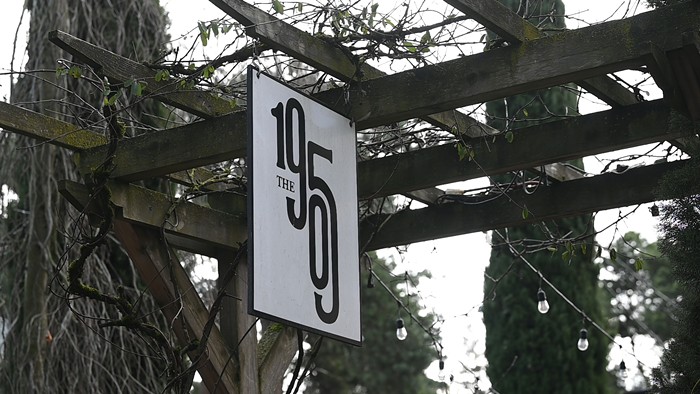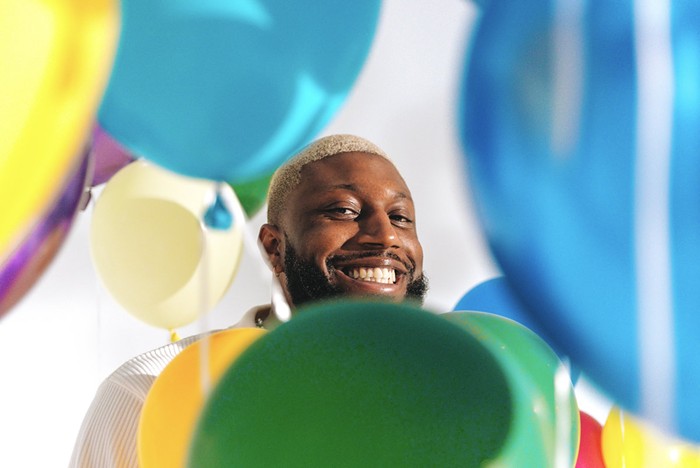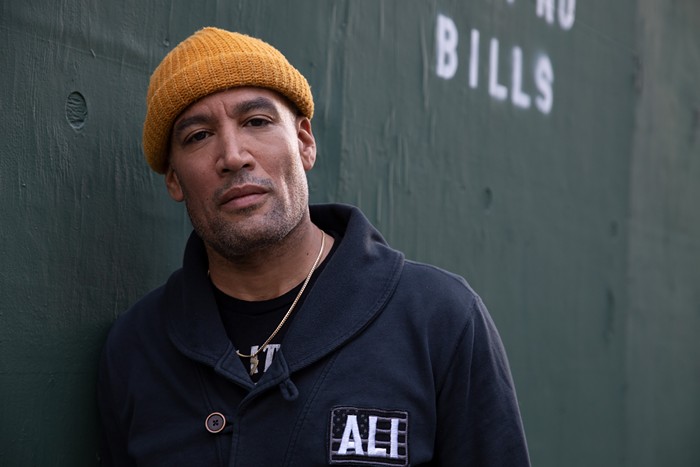THE SLY WINK on the moniker World Party is that it is actually the work of just one person, multi-instrumentalist and pop craftsman Karl Wallinger.
The Welsh-born Wallinger was originally brought onboard Mike Scott's outfit the Waterboys, but by the time his contributions helped make up the classic This Is the Sea album, it was apparent that just being a sideman in someone else's project wasn't going to work.
Wallinger formed World Party a quarter of a century ago and introduced the world to a studio wizard who kept one foot planted in the lyric and craft world of the Beatles and Dylan, but mixed in pastiches of Prince-inspired '70s soul and funk. World Party's first album Private Revolution had a top 20 American hit with "Ship of Fools," and the second album, the classic Goodbye Jumbo, won Q magazine's album of the year.
The usual record label gaffes were to follow, as well as a near-death illness that had Wallinger down for five years, but he's back and happy to be making music on his terms. I talked to him on the phone from his studio in North London.
MERCURY: This tour of the US comes on the heels of the release of the five-disc career spanner Arkeology. What sort of madness made you undertake that project?
KARL WALLINGER: Well, I was at that time of life when someone comes up and says, "How about a box set!?" and that made me go into a pale-faced stupor. But I was writing in a great diary that we get every year called the Redstone Diary, where you have images on one page and the week on the other. It just kind of hit me that I've got loads of stuff on tape that people have never heard. Some they have, but a lot of it they haven't, so it would be fun to do it like a diary. But the problem was, I couldn't choose the songs, it was like seeing the forest through the trees. So I got Mike Worthington, our label manager, to sit locked in a room with five days' worth of music and when he was done, he had four of the five discs picked out. I was really pleased because I thought some of these songs, songs that I really liked, might not ever see the light of day. So it was a perfect project for those songs.
I enlisted my daughter and her friends to put the pictures together so it had the feel of a diary. I just sat in the front room for about six weeks putting it all together. It's a very World Party project. Of course the irony is not lost that I doubled the output of World Party discs in one go of it.
Is there a track you'd forgotten about, but after revisiting you thought, "I have to get that out properly"?
Yes! There is a song called "Words," which is almost an electronic track, and I hadn't heard it since I did it back in 1991, and to hear it again was incredible, like finding an old friend.
You mentioned the output of albums by World Party, and you have a reputation as a bit of a perfectionist, but you were recently quoted as saying, "I'm not a control freak anymore, I realize the futility of it."
[Laughs] It's definitely a good feeling. I think having the aneurysm helped in dealing a blow to—well, it made me loosen up. You know, I used to have a fear that if I didn't play a certain way, well everything would blow up, but I'm over that now. All I believe in is the harmonies, the melodies, and the words, and if you have that, you can get a good performance out of it in various ways. In some ways, the song thrives equally if I do it with a three-piece as when I do it with a full band. I'm much looser these days. Much looser!
You mentioned the brain aneurysm you had in 2001. That probably changed your perspective a little?
Yeah. I was riding my bike with my son in freezing cold weather, after spending six months in the studio, chain smoking. Honestly, I don't really know what happened. I had a headache, and the next thing I know I'm telling them to phone an ambulance, fell back asleep and when I woke I was in the hospital in Cambridge. It was a strange event and there is nothing you can do about it. It's weird, I wasn't freaking out, I was strangely okay. I just tried to go along with it. I had some amazing visions; it was like being the pilot of a ship with no course. You do get past it and then kind of go, "What the fuck was that?"
When you were in the hospital recovering, Robbie Williams covered "She's the One" and it sold a bazillion copies.
That was quite lucky, wasn't it? They used the band that I had been using on the road, and stayed faithful to the song. What can I say, it kept me in baked beans and ice cream, and kept the kids in school. It paid the bills for five years, while I was trying to figure out what the hell I was doing after the aneurysm. It was amazingly fortunate that it did so well; it went to number one in quite a few countries. I was very lucky.
Do you have any bitterness toward the way Chrysalis Records botched up your career on the heels of Goodbye Jumbo?
Well, hey, yeah, you can think about it, or you can just get on with it. You know, it is amazing, but I've always been my own person. I've made mistakes, too. I was never somebody who was going to be pushed around by the business. I think that probably didn't do me any favors in a lot of ways, but in the end I'm glad I was my own person because I have control of my entire catalog. I'm lucky. I've got my studio, I get to record and play songs, I mean I don't really know how much better it can get actually.
I don't really know what the bonuses are. People who seem to have made it to the top of the mountain seem to go quite crazy. That was just a chapter; I mean, it's not over 'til it's over—something charming may happen in the end. I don't really want to think about how I could have been something else, because I was never anxious about pleasing the business. That said, I took so long between albums, there were always new people at the record label that maybe didn't know me, but that's the way I played it. I'm just happy for my longevity, and in a way, the songs mean more now than when I wrote them.
Maybe that's a nod to the fact you were writing about treating the earth and environment better 30 years ago. Is there a part of you that says, "It's about time. I've been talking about this for a while now"?
Not really, because it's not like it's over and everything is resolved. I think it's because I grew up by the sea, so I've always been fascinated with the ebb and flow of the natural world. It's an emotional thing for me more than it is a scientific or practical thing. I mean, how practical is it that I fly on planes? What is that all about? But it's the irony of it. That is what I was saying in "Put the Message in a Box." I mean, "Put the message in a box, put the box into a car," I mean, you're fucked. So it's difficult to be anything. I think that's what I was writing about. I wasn't saying, "save the world," I was saying it isn't easy, even if you try.
Where do you want to see yourself musically in the next few years?
I want to be releasing records. I have plans on maybe going electronic in how we disseminate the music. I'm working on that right now, but I want to carry on, and get back into it. That's it, really; it's that simple. Just keep making music.



















